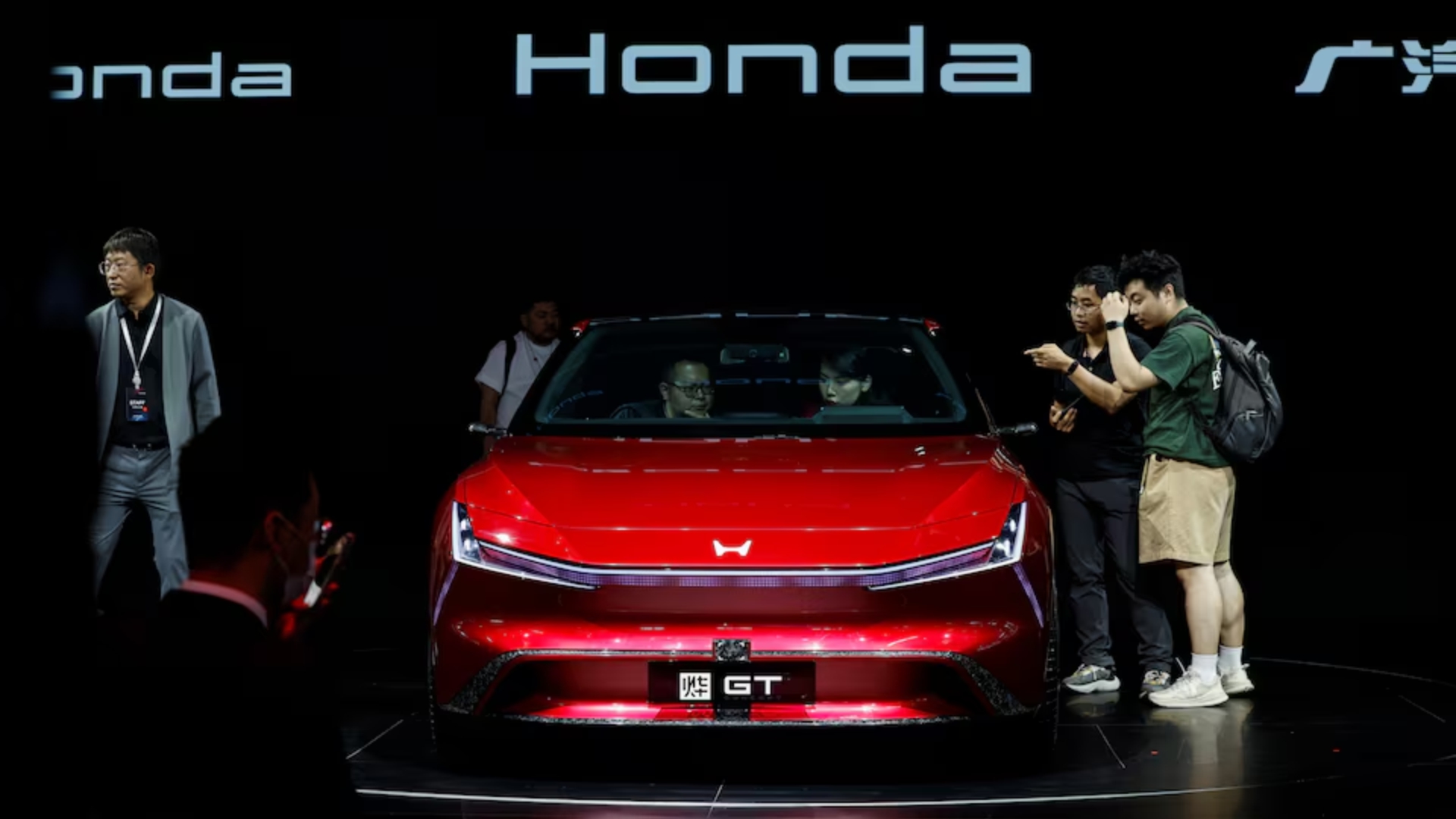BEIJING, (Reuters) – China’s largest auto show opened in Beijing on Thursday with the biggest names showing off their latest electric vehicles (EVs), underlining how the world’s largest auto market is already in an all-electric state of mind, and isn’t looking back.
Automakers are set to unveil 117 new models versus 93 at last year’s show in Shanghai,while overall 278 new energy vehicles (NEVs) will go on display, seven more than last year, organisers said.
The show, which runs through early next month, comes as NEV sales hit a milestone in early April, accounting for over 50% of cars sold in China, auto association data showed.
Sales have been getting a boost from a year-long price war that has sapped profit margins, as automakers strive to keep up by announcing newer, cheaper models and promotions.
“At the Beijing auto show, there’s no doubt there is no interest in gasoline vehicles anymore. Everyone is looking for the latest technologies in intelligence and electrification,” William Li, founder and CEO of Chinese EV maker Nio, told Reuters.
“If you come here, you should have no doubt about EVs anymore. It is actually not the future but is what’s happening right now.”
Crowds flooded the booths of Chinese manufacturers such as BYD and industry newcomer Xiaomi, with the smartphone maker stealing the show by holding one of the earliest press events. Xiaomi CEO Lei Jun said locked-in orders for its sporty SU7 sedan had hit 75,723 and that buyers included owners of cars from the likes of BMW and Audi.
BYD, the world’s largest EV maker, heavily promoted its Yangwang and Denza premium brands as it tries to shed its image as a low-cost automaker.
It also announced the Ocean-M, a sporty rear-wheel-drive hatchback priced 150,000 to 200,000 yuan ($20,699 to $27,598) that will be the first vehicle built on a new all-electric platform. The mid-sized car targets China’s middle class and sells far below the price of mainstream EVs in North America and Europe.
Foreign automakers, who have been scrambling to reset their China strategies and catch up with the electric shift, touted plans to invest more in local production and research, with Japan’s Nissan Motor and Mazda Motor unveiling cars tailored for Chinese drivers.
U.S. automaker General Motors left traditional engine vehicles out of its show line-up for the first time, while Germany’s Mercedes Benz dismissed rumours it was giving up on electrification as it showed a handful of new EVs.
Tesla skipped the show again. Its last appearance was in 2021 when an unhappy customer clambered atop a Tesla being displayed to protest its handling of her complaints about brakes she said were malfunctioning.
Some Chinese brands outlined overseas plans, brushing off European and U.S. concerns about industry overcapacity and stressed they had simply become better through innovation.
“With the Chinese automotive industry entering a new era of globalisation and the growing strength of Chinese domestic brands, Chinese vehicles moving onto the world stage has also become a new trend,” said Great Wall Motor President Mu Feng.
SMART DRIVING
Domestically designed advanced driving assistance systems similar to Tesla’s Full Self-Driving (FSD) were also marketed by several automakers as key selling points.
A number of firms, such as Seres and Guangzhou Automobile Group (GAC), which markets China’s third-best-selling EV brand, touted systems supplied by Huawei Technologies whereas others like BYD and XPeng promoted features developed in-house.
BYD said it would launch two revamped models in its mass market Dynasty and Ocean series in the second quarter equipped with its self-developed advanced driving assistance system (ADAS), while XPeng said it would continuously upgrade software at a “super fast” pace to keep it ahead of rivals.
GAC said it would launch flagship models equipped with Huawei’s ADAS from January 2025. It is among seven brands of state-owned automakers that struck partnerships with Huawei to leverage the latter’s ADAS technology.
“Huawei is leading in advanced assistance driving capabilities,” said GAC General Manager Feng Xingya. “We have to make sure the GAC products consumers get are most advanced in those technologies.”
($1 = 7.2468 Chinese yuan renminbi)
Reporting by Kevin Krolicki, Zoey Zhang, Sarah Wu and Qiaoyi Li; Additional Reporting by Sophie Yu, Liam Mo, Yuhan Lin and Daniel Leussink; Writing by Brenda Goh; Editing by Christopher Cushing











